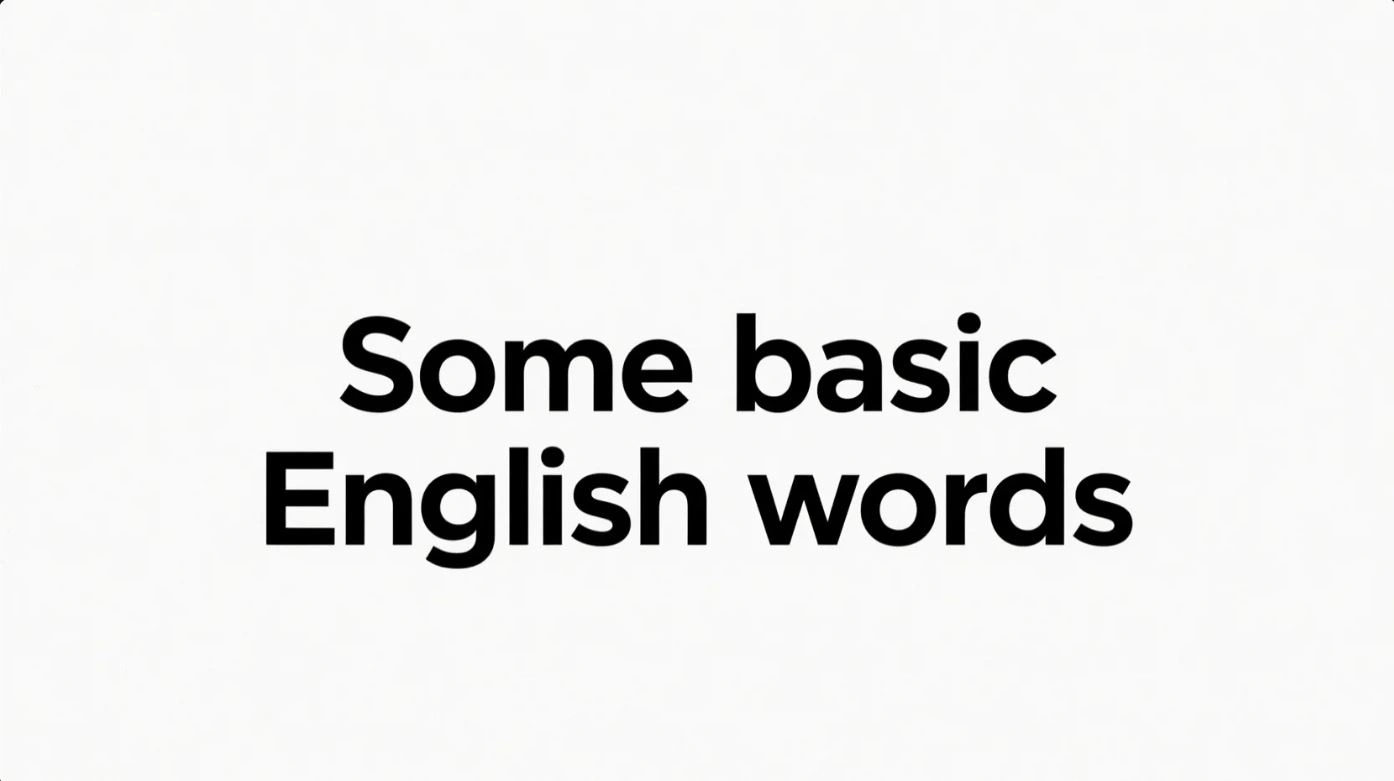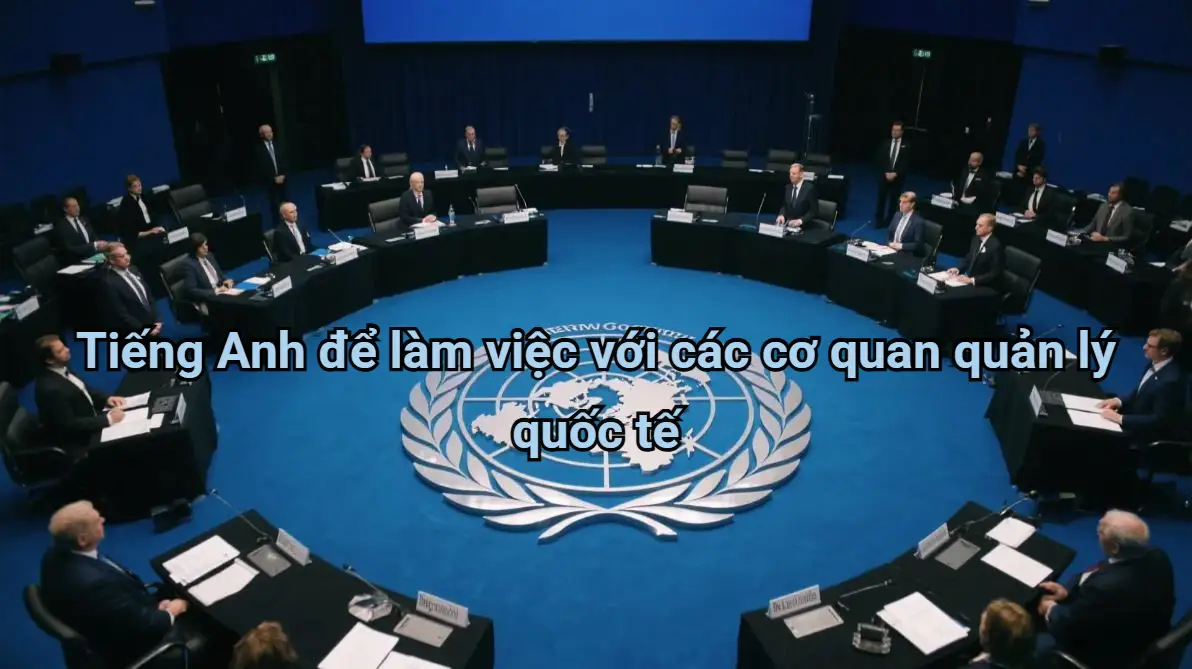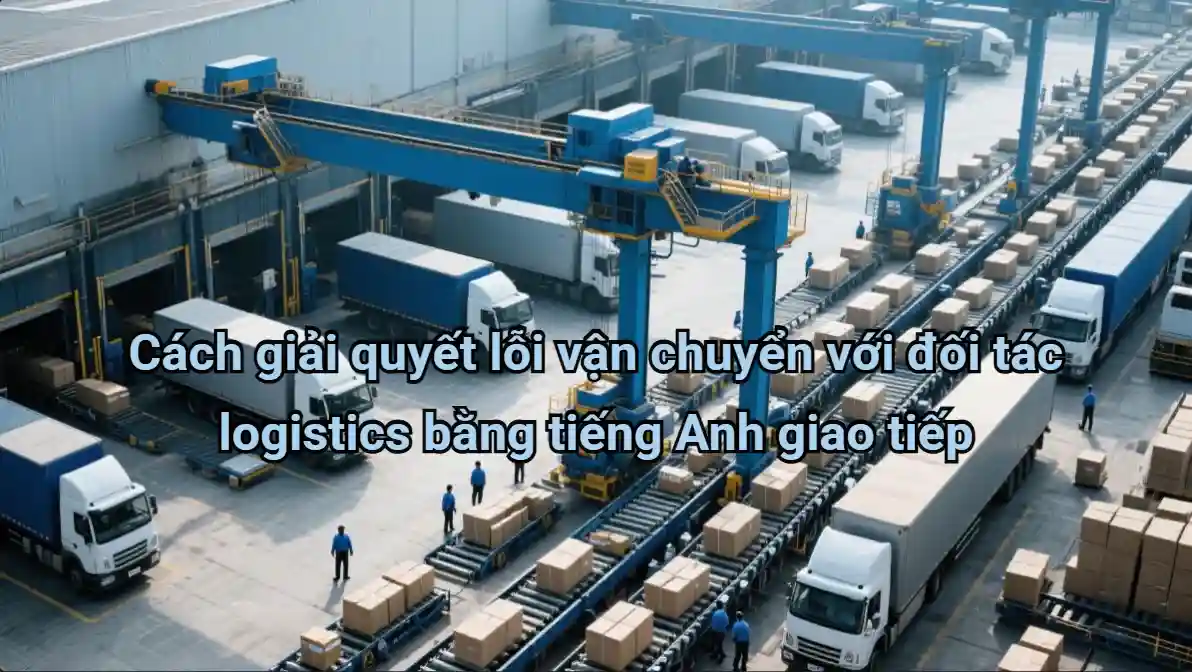Chủ đề “100 từ vựng và cụm từ vựng tiếng Anh về ngành nghề Quản trị dự án xây dựng” giúp người học nắm vững các thuật ngữ chuyên môn quan trọng trong lĩnh vực xây dựng. Từ vựng này bao gồm các khái niệm liên quan đến quản lý dự án, các giai đoạn thi công, chi phí, tiến độ và an toàn lao động, giúp cải thiện khả năng giao tiếp chuyên nghiệp.
Từ vựng nghề Quản trị dự án xây dựng
| Project Management | Quản lý dự án |
| Construction Project | Dự án xây dựng |
| Project Planning | Lập kế hoạch dự án |
| Project Scheduling | Lập lịch dự án |
| Resource Allocation | Phân bổ nguồn lực |
| Project Budgeting | Lập ngân sách dự án |
| Cost Estimation | Ước tính chi phí |
| Risk Management | Quản lý rủi ro |
| Project Scope | Phạm vi dự án |
| Stakeholder Management | Quản lý các bên liên quan |
| Project Charter | Hiến chương dự án |
| Construction Drawings | Bản vẽ xây dựng |
| Building Codes | Mã xây dựng |
| Project Milestones | Các mốc dự án |
| Quality Assurance | Đảm bảo chất lượng |
| Project Execution | Thực hiện dự án |
| Contract Administration | Quản lý hợp đồng |
| Change Management | Quản lý thay đổi |
| Site Management | Quản lý công trường |
| Construction Contracts | Hợp đồng xây dựng |
| Project Timeline | Dòng thời gian dự án |
| Work Breakdown Structure (WBS) | Cấu trúc phân chia công việc (WBS) |
| Project Deliverables | Các sản phẩm bàn giao của dự án |
| Project Phases | Các giai đoạn dự án |
| Project Integration Management | Quản lý tích hợp dự án |
| Procurement Management | Quản lý thu mua |
| Construction Management Software | Phần mềm quản lý xây dựng |
| Safety Management | Quản lý an toàn |
| Subcontractor Management | Quản lý nhà thầu phụ |
| Performance Measurement | Đo lường hiệu suất |
| Resource Management | Quản lý nguồn lực |
| Construction Risks | Rủi ro xây dựng |
| Project Control | Kiểm soát dự án |
| Budget Tracking | Theo dõi ngân sách |
| Cost Control | Kiểm soát chi phí |
| Construction Site Safety | An toàn công trường xây dựng |
| Building Permit | Giấy phép xây dựng |
| Project Documentation | Tài liệu dự án |
| Construction Phase | Giai đoạn xây dựng |
| Project Review | Đánh giá dự án |
| Progress Reporting | Báo cáo tiến độ |
| Team Coordination | Phối hợp nhóm |
| Construction Methodology | Phương pháp xây dựng |
| Scope Creep | Trượt phạm vi |
| Project Plan Development | Phát triển kế hoạch dự án |
| Construction Scheduling | Lập lịch xây dựng |
| Issue Resolution | Giải quyết vấn đề |
| Project Stakeholders | Các bên liên quan dự án |
| Project Deliverables Schedule | Lịch bàn giao sản phẩm dự án |
| Earned Value Management (EVM) | Quản lý giá trị thu được (EVM) |
| Construction Drawings Review | Xem xét bản vẽ xây dựng |
| Site Inspection | Kiểm tra công trường |
| Change Orders | Lệnh thay đổi |
| Work Authorization | Cấp phép công việc |
| Construction Budget | Ngân sách xây dựng |
| Project Forecasting | Dự báo dự án |
| Resource Scheduling | Lập lịch nguồn lực |
| Construction Quality Control | Kiểm soát chất lượng xây dựng |
| Project Reporting | Báo cáo dự án |
| Project Closure | Hoàn tất dự án |
| Construction Cost Estimation | Ước tính chi phí xây dựng |
| Project Risk Analysis | Phân tích rủi ro dự án |
| Safety Protocols | Các quy trình an toàn |
| Construction Contracts Negotiation | Đàm phán hợp đồng xây dựng |
| Construction Site Logistics | Hậu cần công trường xây dựng |
| Design and Build | Thiết kế và thi công |
| Project Scope Statement | Tuyên bố phạm vi dự án |
| Stakeholder Communication | Giao tiếp với các bên liên quan |
| Construction Resource Planning | Lập kế hoạch nguồn lực xây dựng |
| Project Execution Plan | Kế hoạch thực hiện dự án |
| Construction Management Techniques | Kỹ thuật quản lý xây dựng |
| Project Cost Tracking | Theo dõi chi phí dự án |
| Construction Site Management | Quản lý công trường xây dựng |
| Risk Assessment | Đánh giá rủi ro |
| Construction Project Monitoring | Giám sát dự án xây dựng |
| Building Information Modeling (BIM) | Mô hình thông tin xây dựng (BIM) |
| Construction Project Goals | Mục tiêu dự án xây dựng |
| Project Quality Control | Kiểm soát chất lượng dự án |
| Budget Reconciliation | Đối chiếu ngân sách |
| Contractor Coordination | Phối hợp nhà thầu |
| Construction Scheduling Tools | Công cụ lập lịch xây dựng |
| Project Time Management | Quản lý thời gian dự án |
| Cost-Benefit Analysis | Phân tích chi phí-lợi ích |
| Construction Safety Regulations | Quy định an toàn xây dựng |
| Project Stakeholder Analysis | Phân tích các bên liên quan dự án |
| Construction Management Plan | Kế hoạch quản lý xây dựng |
| Project Risk Mitigation | Giảm thiểu rủi ro dự án |
| Performance Metrics | Các chỉ số hiệu suất |
| Project Execution Strategy | Chiến lược thực hiện dự án |
| Contract Management | Quản lý hợp đồng |
| Site Development | Phát triển công trường |
| Resource Allocation Plan | Kế hoạch phân bổ nguồn lực |
| Project Cost Management | Quản lý chi phí dự án |
| Quality Management Plan | Kế hoạch quản lý chất lượng |
| Construction Workflow | Quy trình làm việc xây dựng |
| Project Scope Management | Quản lý phạm vi dự án |
| Construction Strategy | Chiến lược xây dựng |
| Resource Utilization | Tận dụng nguồn lực |
| Project Timeline Management | Quản lý dòng thời gian dự án |
| Construction Performance Evaluation | Đánh giá hiệu suất xây dựng |
Bài viết sử dụng thuật ngữ
- Project Management: Effective project management ensures that the construction project stays on track and within budget.
- Construction Project: The new office building is a major construction project that requires careful planning and coordination.
- Project Planning: Project planning involves creating a detailed timeline and budget for the construction project.
- Project Scheduling: Accurate project scheduling helps ensure that all construction phases are completed on time.
- Resource Allocation: Proper resource allocation is crucial for optimizing the use of labor and materials on-site.
- Project Budgeting: Project budgeting involves estimating and controlling costs to avoid overruns.
- Cost Estimation: Cost estimation provides a forecast of the expenses involved in the construction project.
- Risk Management: Effective risk management identifies potential issues and develops strategies to mitigate them.
- Project Scope: Defining the project scope helps to clarify the work required and prevent scope creep.
- Stakeholder Management: Stakeholder management involves engaging with all parties affected by the construction project.
- Project Charter: The project charter outlines the objectives, scope, and stakeholders involved in the construction project.
- Construction Drawings: Construction drawings provide detailed plans and specifications for building the structure.
- Building Codes: Compliance with building codes ensures that the construction meets safety and quality standards.
- Project Milestones: Project milestones are key points in the construction timeline that mark the completion of significant tasks.
- Quality Assurance: Quality assurance involves checking that construction work meets the specified standards and requirements.
- Project Execution: Project execution is the phase where the construction work is carried out according to the plan.
- Contract Administration: Contract administration involves managing and overseeing the contracts between the project team and contractors.
- Change Management: Change management addresses how modifications to the project scope and plans are handled.
- Site Management: Site management includes overseeing daily operations and ensuring that the construction site runs smoothly.
- Construction Contracts: Construction contracts outline the terms and conditions agreed upon by the project owner and contractors.
- Project Timeline: The project timeline specifies the schedule for completing each phase of the construction project.
- Work Breakdown Structure (WBS): A Work Breakdown Structure (WBS) divides the project into smaller, manageable components.
- Project Deliverables: Project deliverables are the specific outcomes or products that must be completed and delivered as part of the project.
- Project Phases: The project is divided into distinct phases, such as planning, design, and construction.
- Project Integration Management: Project integration management involves coordinating all aspects of the construction project to ensure they work together effectively.
- Procurement Management: Procurement management involves acquiring the materials and services needed for the construction project.
- Construction Management Software: Construction management software helps track project progress, budget, and resources.
- Safety Management: Safety management ensures that all construction activities are conducted in a safe manner to prevent accidents.
- Subcontractor Management: Subcontractor management involves overseeing the work of subcontractors to ensure they meet project standards.
- Performance Measurement: Performance measurement evaluates how well the construction project is progressing against the plan.
- Resource Management: Resource management involves efficiently using labor, materials, and equipment throughout the construction project.
- Construction Risks: Identifying and mitigating construction risks helps prevent delays and additional costs.
- Project Control: Project control involves monitoring and adjusting project performance to keep it on track.
- Budget Tracking: Budget tracking monitors actual expenditures against the planned budget to control costs.
- Cost Control: Cost control measures are implemented to prevent exceeding the project budget.
- Construction Site Safety: Construction site safety protocols are enforced to protect workers and visitors from hazards.
- Building Permit: A building permit is required before construction can begin to ensure compliance with local regulations.
- Project Documentation: Project documentation includes all records and reports related to the construction project.
- Construction Phase: Each construction phase has specific tasks and deliverables that need to be completed.
- Project Review: Project reviews assess the progress and performance of the construction project at various stages.
- Progress Reporting: Progress reporting provides updates on the status of the construction project to stakeholders.
- Team Coordination: Effective team coordination ensures that all project members work together efficiently.
- Construction Methodology: The construction methodology outlines the techniques and processes used to complete the project.
- Scope Creep: Scope creep refers to uncontrolled changes or additions to the project scope.
- Project Plan Development: Project plan development involves creating a detailed plan that guides the execution of the construction project.
- Construction Scheduling: Construction scheduling determines the timeline for completing each task in the project.
- Issue Resolution: Issue resolution addresses and solves problems that arise during the construction project.
- Project Stakeholders: Project stakeholders include anyone with an interest or investment in the construction project.
- Project Deliverables Schedule: The project deliverables schedule outlines when each deliverable is expected to be completed.
- Earned Value Management (EVM): Earned Value Management (EVM) tracks project performance by comparing planned and actual progress.
- Construction Drawings Review: The construction drawings review ensures that all plans are accurate and complete before work begins.
- Site Inspection: Site inspections assess the progress and quality of construction work on-site.
- Change Orders: Change orders document and authorize modifications to the original project scope or contract.
- Work Authorization: Work authorization approves the commencement of specific tasks or phases within the construction project.
- Construction Budget: The construction budget includes all anticipated costs associated with the project.
- Project Forecasting: Project forecasting estimates future project performance based on current trends and data.
- Resource Scheduling: Resource scheduling plans the allocation of labor, materials, and equipment throughout the project.
- Construction Quality Control: Construction quality control ensures that work meets the required standards and specifications.
- Project Reporting: Project reporting provides detailed updates on progress, issues, and performance.
- Project Closure: Project closure involves finalizing all project activities and completing the project documentation.
- Construction Cost Estimation: Construction cost estimation predicts the expenses involved in completing the project.
- Project Risk Analysis: Project risk analysis identifies potential risks and evaluates their impact on the project.
- Safety Protocols: Safety protocols are guidelines designed to ensure a safe working environment on the construction site.
- Construction Contracts Negotiation: Construction contracts negotiation involves discussing and finalizing the terms of agreements with contractors.
- Construction Site Logistics: Construction site logistics manage the movement of materials and equipment on-site.
- Design and Build: The design and build approach combines design and construction services into a single contract.
- Project Scope Statement: The project scope statement defines the boundaries and deliverables of the construction project.
- Stakeholder Communication: Stakeholder communication ensures that all parties are informed and engaged throughout the project.
- Construction Resource Planning: Construction resource planning involves forecasting and managing the required resources for the project.
- Project Execution Plan: The project execution plan details how the project will be carried out, including tasks and responsibilities.
- Construction Management Techniques: Construction management techniques include methods and strategies used to oversee the project effectively.
- Project Cost Tracking: Project cost tracking monitors expenditures to ensure they align with the budget.
- Construction Site Management: Construction site management involves overseeing daily activities and ensuring the site operates efficiently.
- Risk Assessment: Risk assessment evaluates potential risks and their impact on the project’s success.
- Construction Project Monitoring: Construction project monitoring tracks progress and performance against the project plan.
- Building Information Modeling (BIM): Building Information Modeling (BIM) uses digital representations to design and manage construction projects.
- Construction Project Goals: Construction project goals outline the objectives and outcomes the project aims to achieve.
- Project Quality Control: Project quality control ensures that the construction work meets the established standards and requirements.
- Budget Reconciliation: Budget reconciliation compares actual expenditures with the planned budget to identify discrepancies.
- Contractor Coordination: Contractor coordination involves managing and aligning the work of various contractors involved in the project.
- Construction Scheduling Tools: Construction scheduling tools help plan and track the timeline of the construction project.
- Project Time Management: Project time management involves scheduling tasks and managing deadlines to ensure timely completion.
- Cost-Benefit Analysis: Cost-benefit analysis evaluates the financial advantages and disadvantages of different project options.
- Construction Safety Regulations: Construction safety regulations are rules designed to protect workers and ensure safe practices on-site.
- Project Stakeholder Analysis: Project stakeholder analysis identifies and assesses the needs and interests of project stakeholders.
- Construction Management Plan: The construction management plan outlines the strategies and processes for managing the construction project.
- Project Risk Mitigation: Project risk mitigation involves implementing strategies to reduce the impact of identified risks.
- Performance Metrics: Performance metrics measure how well the project is meeting its objectives and targets.
- Project Execution Strategy: The project execution strategy outlines the approach for carrying out the project and achieving its goals.
- Contract Management: Contract management involves overseeing and administering the contracts related to the construction project.
- Site Development: Site development includes preparing and modifying the site to accommodate construction activities.
- Resource Allocation Plan: The resource allocation plan details how resources will be distributed throughout the project.
- Project Cost Management: Project cost management involves planning, estimating, and controlling costs to keep the project within budget.
- Quality Management Plan: The quality management plan outlines how quality will be maintained throughout the construction project.
- Construction Workflow: Construction workflow defines the sequence of tasks and processes involved in completing the project.
- Project Scope Management: Project scope management ensures that all work required to complete the project is included and defined.
- Construction Strategy: The construction strategy outlines the approach and methods used to execute the project efficiently.
- Resource Utilization: Resource utilization involves optimizing the use of labor, materials, and equipment for the project.
- Project Timeline Management: Project timeline management ensures that all project activities are completed according to the schedule.
- Construction Performance Evaluation: Construction performance evaluation assesses the effectiveness and efficiency of the construction work and processes.
Bài tập
- Effective __________ ensures that the construction project is completed on time and within budget.
- The __________ for the new office building includes several phases, such as design, construction, and inspection.
- __________ involves creating a detailed schedule and budget for the entire construction project.
- Accurate __________ helps in tracking progress and ensuring timely completion of construction tasks.
- Proper __________ ensures that labor and materials are used efficiently throughout the project.
- __________ involves estimating the costs associated with the construction project and controlling expenses.
- __________ provides a forecast of the total expenses required to complete the construction project.
- Effective __________ identifies potential issues and develops strategies to manage and mitigate risks.
- Defining the __________ helps clarify the work required and avoid unnecessary changes.
- __________ involves engaging with all parties who have an interest or stake in the construction project.
- The __________ outlines the objectives, scope, and stakeholders involved in the construction project.
- __________ provide detailed plans and specifications for constructing the building.
- Compliance with __________ ensures that the construction meets safety and quality standards.
- Key __________ in the construction timeline mark significant achievements and completion of tasks.
- __________ involves checking and maintaining the standards required for construction work.
- __________ is the phase where actual construction activities are carried out according to the plan.
- __________ involves managing and overseeing the contracts between the project team and contractors.
- __________ addresses how changes to the project scope and plans are handled.
- __________ includes overseeing daily operations and ensuring the construction site runs efficiently.
- The __________ outline the terms and conditions agreed upon by the project owner and contractors.
- The __________ specifies the schedule for completing each stage of the construction project.
- A __________ divides the project into smaller, manageable components for easier management.
- The __________ are the specific outcomes or products that must be delivered by the project.
- The project is divided into distinct __________, such as planning, design, and construction.
- __________ involves coordinating all aspects of the construction project to ensure they work together effectively.
- __________ involves acquiring the materials and services needed for the project.
- __________ helps track project progress, budget, and resource allocation.
- __________ ensures that all construction activities are conducted safely to prevent accidents.
- __________ involves overseeing the work of subcontractors to ensure they meet project standards.
- __________ evaluates how well the construction project is progressing against the plan.
- __________ involves efficiently managing labor, materials, and equipment throughout the project.
- Identifying and mitigating __________ helps prevent delays and additional costs.
- __________ involves monitoring and adjusting project performance to keep it on track.
- __________ monitors actual expenditures against the planned budget to control costs.
- __________ measures are implemented to prevent exceeding the project budget.
- __________ protocols are enforced to protect workers and visitors from hazards on-site.
- A __________ is required before starting construction to ensure compliance with local regulations.
- __________ includes all records and reports related to the construction project.
- Each __________ has specific tasks and deliverables that need to be completed.
- __________ assess the progress and performance of the construction project at various stages.
- __________ provides updates on the status of the construction project to stakeholders.
- Effective __________ ensures that all project members work together efficiently.
- The __________ outlines the techniques and processes used to complete the project.
- __________ refers to uncontrolled changes or additions to the project scope.
- __________ involves creating a detailed plan that guides the execution of the construction project.
- __________ determines the timeline for completing each task in the project.
- __________ addresses and solves problems that arise during the construction project.
- __________ include anyone with an interest or investment in the construction project.
- The __________ outlines when each deliverable is expected to be completed.
- __________ tracks project performance by comparing planned and actual progress.
- The __________ ensures that all plans are accurate and complete before construction begins.
- __________ assesses the progress and quality of construction work on-site.
- __________ document and authorize modifications to the original project scope or contract.
- __________ approves the commencement of specific tasks or phases within the construction project.
- The __________ includes all anticipated costs associated with the project.
- __________ estimates future project performance based on current trends and data.
- __________ plans the allocation of labor, materials, and equipment throughout the project.
- __________ ensures that work meets the required standards and specifications.
- __________ provides detailed updates on progress, issues, and performance.
- __________ involves finalizing all project activities and completing the project documentation.
- __________ predicts the expenses involved in completing the project.
- __________ identifies potential risks and evaluates their impact on the project.
- __________ are guidelines designed to ensure a safe working environment on the construction site.
- __________ involves discussing and finalizing the terms of agreements with contractors.
- __________ manage the movement of materials and equipment on-site.
- The __________ approach combines design and construction services into a single contract.
- The __________ defines the boundaries and deliverables of the construction project.
- __________ ensures that all parties are informed and engaged throughout the project.
- __________ involves forecasting and managing the required resources for the project.
- The __________ details how the project will be carried out, including tasks and responsibilities.
- __________ include methods and strategies used to oversee the project effectively.
- __________ monitors expenditures to ensure they align with the budget.
- __________ involves overseeing daily activities and ensuring the site operates efficiently.
- __________ evaluates potential risks and their impact on the project’s success.
- __________ tracks progress and performance against the project plan.
- __________ uses digital representations to design and manage construction projects.
- __________ outline the objectives and outcomes the project aims to achieve.
- __________ ensures that the construction work meets the established standards and requirements.
- __________ compares actual expenditures with the planned budget to identify discrepancies.
- __________ involves managing and aligning the work of various contractors involved in the project.
- __________ help plan and track the timeline of the construction project.
- __________ involves scheduling tasks and managing deadlines to ensure timely completion.
- __________ evaluates the financial advantages and disadvantages of different project options.
- __________ are rules designed to protect workers and ensure safe practices on-site.
- __________ identifies and assesses the needs and interests of project stakeholders.
- The __________ outlines the strategies and processes for managing the construction project.
- __________ involves implementing strategies to reduce the impact of identified risks.
- __________ measure how well the project is meeting its objectives and targets.
- The __________ outlines the approach for carrying out the project and achieving its goals.
- __________ involves overseeing and administering the contracts related to the construction project.
- __________ includes preparing and modifying the site to accommodate construction activities.
- The __________ details how resources will be distributed throughout the project.
- __________ involves planning, estimating, and controlling costs to keep the project within budget.
- The __________ outlines how quality will be maintained throughout the construction project.
- __________ defines the sequence of tasks and processes involved in completing the project.
- __________ ensures that all work required to complete the project is included and defined.
- The __________ outlines the approach and methods used to execute the project efficiently.
- __________ involves optimizing the use of labor, materials, and equipment for the project.
- __________ ensures that all project activities are completed according to the schedule.
- __________ assesses the effectiveness and efficiency of the construction work and processes.
Đáp án
- Project Management
- Construction Project
- Project Planning
- Project Scheduling
- Resource Allocation
- Project Budgeting
- Cost Estimation
- Risk Management
- Project Scope
- Stakeholder Management
- Project Charter
- Construction Drawings
- Building Codes
- Project Milestones
- Quality Assurance
- Project Execution
- Contract Administration
- Change Management
- Site Management
- Construction Contracts
- Project Timeline
- Work Breakdown Structure (WBS)
- Project Deliverables
- Project Phases
- Project Integration Management
- Procurement Management
- Construction Management Software
- Safety Management
- Subcontractor Management
- Performance Measurement
- Resource Management
- Construction Risks
- Project Control
- Budget Tracking
- Cost Control
- Construction Site Safety
- Building Permit
- Project Documentation
- Construction Phase
- Project Review
- Progress Reporting
- Team Coordination
- Construction Methodology
- Scope Creep
- Project Plan Development
- Construction Scheduling
- Issue Resolution
- Project Stakeholders
- Project Deliverables Schedule
- Earned Value Management (EVM)
- Construction Drawings Review
- Site Inspection
- Change Orders
- Work Authorization
- Construction Budget
- Project Forecasting
- Resource Scheduling
- Construction Quality Control
- Project Reporting
- Project Closure
- Construction Cost Estimation
- Project Risk Analysis
- Safety Protocols
- Construction Contracts Negotiation
- Construction Site Logistics
- Design and Build
- Project Scope Statement
- Stakeholder Communication
- Construction Resource Planning
- Project Execution Plan
- Construction Management Techniques
- Project Cost Tracking
- Construction Site Management
- Risk Assessment
- Construction Project Monitoring
- Building Information Modeling (BIM)
- Construction Project Goals
- Project Quality Control
- Budget Reconciliation
- Contractor Coordination
- Construction Scheduling Tools
- Project Time Management
- Cost-Benefit Analysis
- Construction Safety Regulations
- Project Stakeholder Analysis
- Construction Management Plan
- Project Risk Mitigation
- Performance Metrics
- Project Execution Strategy
- Contract Management
- Site Development
- Resource Allocation Plan
- Project Cost Management
- Quality Management Plan
- Construction Workflow
- Project Scope Management
- Construction Strategy
- Resource Utilization
- Project Timeline Management
- Construction Performance Evaluation











